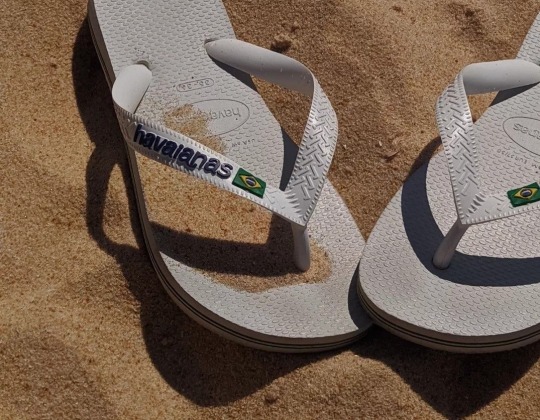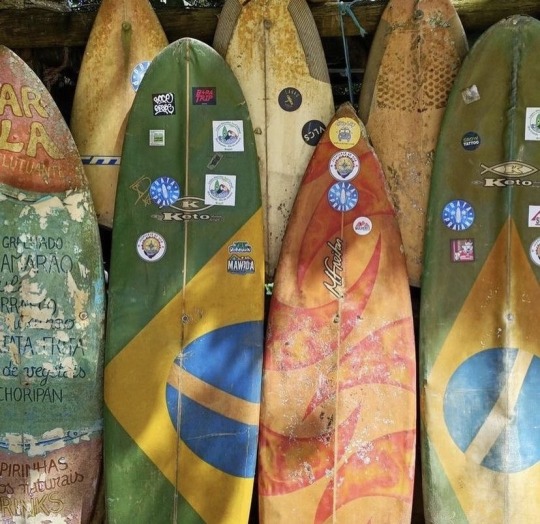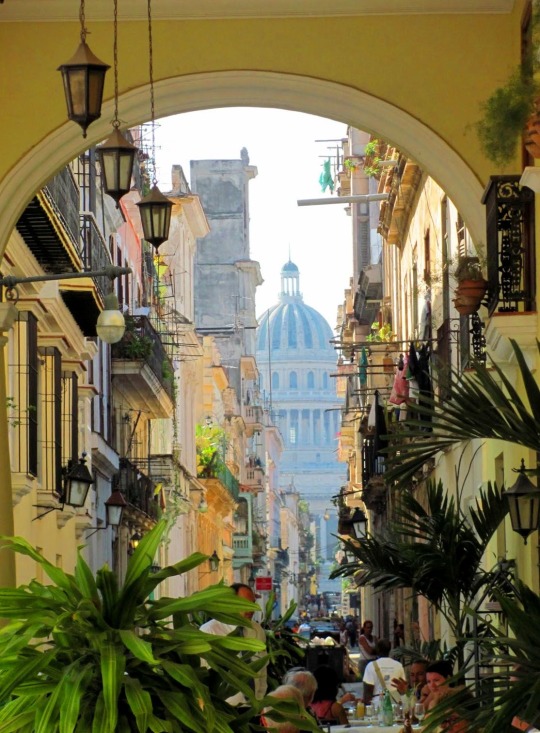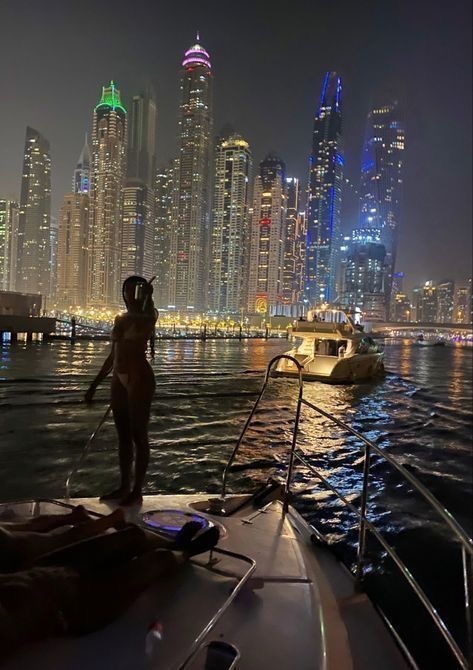#easy work permit in Europe
Explore tagged Tumblr posts
Text
0 notes
Text
MUSUTAFU in my mha dr
now playing...black list - hime
AKA; the devils resort

GEOGRAPHY
"when i hear that song, i wanna be with you"
musutafu (MST) prefecture is an island off the southern coast of japan located in the phillipine sea. its about 500-800km away from honshu, has 25,000 mi of land and is home to 35.3 million people. MST houses the most biodiverse tropical rainforest in japan (and one of the three most biodiverse in asia) which covers the entire island. MST has mild winters and minimal snow. it rarely reaches under 60/50 degrees F (10/15C?). both summer and spring are extremely humid.
HISTORY
"buffalo soldier, dreadlock rasta"
i never script colonialism clean out, i just make it different. because im always like wait if we dont have colonialism why tf are so many people speaking european languages? makes no sense right? anyways heres how it worked (in all of my DR's btw); europeans had very little power & money compared to locals who integrated with the culture (including locals of european descent) and it was more of a "leader in name" thing. in actuality, colonialism was more similar to a trade partner agreement with colonies, and colonies themselves were very hard to keep--and usually made more money and had more clout than their european counterparts. MST had this situation with spain, england and portugal. as it was an island (and a rather big one) it was already very cut of from japan culturally, economically & socially. so when the mainland went in seclusion for the meiji restoration, the europeans had already gotten full access to MST.




CULTURE
"90 degress inna the shade, temperature tun up"
linguistics the standard language is a portuguese-spanish-tagalog-japanese fusion? and more japanese dominant. no fucking clue how thatll sound.
diversity MST is very racially & ethnically diverse, with a steady flow of immigrants from all over the world. a few prominent origin points include ; south east asia, central america, the carribbean, usa, western europe, south america, taiwan and india. but of course there are many more. the natives are pretty racially diverse as well, about half of the japanese population is "afro-japanese" which is genetically similar to aetas or melanesians.
motorsports drag racing is fully decriminalized and extremely normal. so much so that entire tournaments and elaborate race tracks are built to encourage it. (partially because of the tourism it brings) but before you can do any drag racing you need a permit or license. its very normal for celebrities and heroes to drag race, theres even a yearly competition for celebrities.
lifestyle lazy, indulgent and leisurely. days are spent relaxing at a beach, vibing at a local cookout or shopping. were very friendly, open and relaxed. its a city with very big & bold personalities. most people are ambiverts and its cartoonishly easy to make friends. unfortunately the culture can be a little shallow at times.
beauty standard few are fussy on beauty standards but a visible sun tan is universally preferred. however theres two big rules: no fake tanning under any circumstance & never tan more than two shades darker. in terms of body types, both men & women with toned bodies and "nice" asses are attractive--but for women the addition of being curvy is preferred.
religion among the japanese population the most practiced religion is catholism. this branch of catholism is very heavily mixed with shintoism & buddhism though.
mardi gras/carnaval the prefectures biggest holiday. its both the best and the worst. the sense of community is a focal point, millions of people celebrating and having fun (including the sizable portion of non-christians). everywhere is packed, music is blasting and half the city is drunk and/or high. by night everyone forgets how to act. surely the busiest day for MST based heroes.





MUSUTAFU CITY DISTRICTS (16 total but im only writing for 4)
"on an island in the sun, we'll be playing and having fun"
the beach durrr the city has a ton of beaches, but this one is the most iconic, large and populated. its right in front of the cities biggest shopping center (what is basically our equivalent of times square...but not as dirty or ghetto). theres always people at this beach, hanging out, on a work break or at a cookout.
the ghetto about 2-3 districts are classified as ghettos. they have an extremely high crime rate, but low quality of life, income & rent. expect seas of street vendors, houses stacked on eachother, music playing all through the night and walls panted with street art. (urarakas district 😍)
the islands a fifteen island archipelago off of the cities coast. considered middle class or lower middle class. life in the islands is slow and easy going. many people work in agriculture or fishing so its known for food & open air markets. the islands have a fun nightlife scene but its generally more laid back. (my district)
rural district the largest district in the city. known for its rich traditional japanese culture, the abundance of natural marijuana and nature. the district is very sparsely industrialized, especially compared to the rest of the city, so its mostly jungle/rainforest. theres also so much wildlife there! and disturbingly large roaches. something cool about it is this biiig ass gate surrounding the whole district! (todoroki family's district)
all districts have a fair share of mongrels / stray dogs. many people take them in to "guard" the house, or just to care for them
people from the islands like to have cute lil sea animal mailboxes!





KNOWN FOR
"as i recall i know you love to show off"
love for sports. soccer, basketball, volleyball, baseball & surfing are extremely popular (among both genders)
lots of the population has a shopping addiction
elaborate heists.
trashy reality tv.
big film / tv industry.
high crime rate.
musutafuans want to go to the beach like every fucking day.
really good music.
clubs, casinos, nightlife in general.
beautiful beaches. white sand & clear blue water.





POP CULTURE
"aserejé, ja, dejé"
GTA game based on MST
love & hip hop: MST
brazilian funk, rnb, afro beats, amapiano, dancehall, reggae, dembow, reggaeton and rap are really popular. way more than non japanese/latin pop music
real housewives of MST
we have golden crust, jollibee, mama empanada, and kfc but no mcdonalds 😬
havianas are really trendy.






im actually considering scripting my version of MST in some of my other DR's (idol dr especially) but im on the fence.
if any of this inspired you your free to include some for you dr <3
#shiftblr#shifting blog#anti shifters dni#shifting community#desired reality#shifting realities#shifting motivation#reality shifting#dr rambles#shifting#mha dr#shifting to mha#mha shifting#mha shifter#mha drself#dr scripting#dr scrapbook#anime shifting#reality shifter#reality shift#mha au#shifting reality#shifter#bnha shifting#bnha dr
91 notes
·
View notes
Text
🚨 The Dark Side of Hope: Recruitment Scams in Kenya…
By Mohamud Osman – Founder, IFMOSA Work
🛡️“Go Beyond Abroad”
Every day in Kenya, young people wake up with a dream.. a big dream for them, a simple thing for us born and living in the luxury of Europe, they just want to find a job.. a job abroad like where we are, just to support their families, and break the cycle of poverty. But for thousands, this dream is stolen before it even begins.
Recruitment scams have become a national crisis. Fake agents. Empty promises. Families selling land or taking loans just to get scammed. And the worst part? No one talks about it. Everyone is just quiet 🤫
🎭 How They Trick You:
•They use fancy logos, fake “contracts”, and even staged interviews.
•They promise jobs in Dubai, Qatar, Canada, or Europe with too-good-to-be-true salaries.
•They demand “processing fees”, visa payments, or medical exam charges — all upfront.
Then.. they disappear 🌫️
By the time people realise, it’s too late. The money is gone. The “agent” has blocked them. And the family is left in debt, left in ruins.
💔 Real Stories. Real Victims.
•A girl from Kisii lost KES 150,000 for a “nursing job” in Qatar that never existed.
•A young man from Mombasa paid KES 80,000 for a “visa” to Poland — only to discover the office was fake.
•A family in Nairobi sold their car to pay an agent for two daughters’ work permits in the UAE. They never heard from him again.
This isn’t rare. It’s happening every day. You want receipts here is one

🛑 Why It Keeps Happening:
1. Desperation — People will believe anything if it offers hope.
2. Lack of awareness — There’s no easy way to verify what’s real.
3. No regulation — Scam agents can open a fake office and close it a week later.
4. TikTok, WhatsApp, Telegram — the new playgrounds for fraud.
And yet, we still stay silent. Many victims are too ashamed to speak. Others fear nothing will change.
✊ That’s Why I Started IFMOSA Work
I’ve seen the pain. I’ve talked to victims. And I’ve been shadow-banned on TikTok for exposing the truth.
But I won’t stop.
IFMOSA Work is not just another agency. We’re a mission. A movement. A voice for real, honest, verified opportunities — especially for youth in Kenya and the Horn of Africa.
We work only with real employers. We don’t charge fake processing fees. And if we can’t help you now — we’ll tell you that clearly, with respect.
No lies. No manipulation.
📣 What You Can Do
•Share this post with your friends and family.
•Report fake agents — even if you’ve never been scammed.
•Follow us for updates, education, and job alerts.
•Ask questions before paying anyone — no matter how official they seem.
📬 Want to Talk?
Reach out to me personally. I’ll help however I can — even if it’s just listening.
What’s app: click here to start chat
👉 www.ifmosawork.com
Don’t let your dream become a scam. Let’s fight back — together.
#RecruitmentScamsKenya #IFMOSAWork #KenyaToGulf #WorkAbroadSafely #worklife #sweden
4 notes
·
View notes
Text
Trusted Pet Shipping Service & International Pet Shipping by Dream Schnauzer Puppies Home

When bringing home a new furry friend from another state—or even another country—safe and reliable transport becomes a top priority. At Dream Schnauzer Puppies Home, we don’t just breed healthy, happy Schnauzer puppies—we also make sure they arrive safely at their new home. Through our expert pet shipping service, including international pet shipping, we ensure your new companion travels securely and comfortably.
Whether you’re located in the U.S. or abroad, our team is experienced in arranging stress-free pet travel, giving you peace of mind from the moment your puppy leaves our care to the moment they arrive in your arms.
Why Choose Dream Schnauzer Puppies Home?
AtDream Schnauzer Puppies Home, we believe every puppy deserves a safe and gentle transition to their forever home. That's why we partner with some of the industry's most reputable pet shipping service providers to manage domestic and international puppy transportation.
Our team offers:
USDA-certified travel partners
Personalized coordination and support
Health documentation and travel prep
Door-to-door delivery options
From the first inquiry to final delivery, we handle every detail so you can focus on welcoming your new best friend.
What Is International Pet Shipping?
International pet shipping refers to the specialized service of transporting pets safely across borders. Whether you’re adopting from us and living overseas, or relocating internationally, we can help.
Our experienced team arranges every aspect of the process, including:
Airline booking with pet-friendly carriers
Import/export permits and country-specific documentation
Health checks and vaccinations required for travel
Temperature-controlled crates and pet comfort measures
We work only with pet couriers and airlines that adhere to strict animal welfare and safety protocols.
Pet Shipping Service – How It Works
Dream Schnauzer Puppies Home makes pet delivery easy. Here’s a step-by-step overview of how our pet shipping service works:
1. Puppy Selection
Choose your Schnauzer puppy from our available litters. We’ll provide health records, personality insights, and photos.
2. Shipping Consultation
Once you’ve selected your puppy, our shipping specialist will contact you to discuss logistics, destination, and preferred timing.
3. Vet Clearance and Documentation
Your puppy will receive a full veterinary exam, including all required vaccines and health certification for travel.
4. Travel Coordination
We book your puppy’s travel with trusted domestic or international shipping providers. You’ll receive full tracking and updates throughout.
5. Arrival and Welcome
Your puppy will arrive at the designated location—whether that’s your local airport or front door—safe, sound, and ready to start their new life.
Global Reach, Personal Service
Whether you live in Europe, Asia, Canada, or anywhere in between, our international pet shipping services make it possible to bring home a Dream Schnauzer puppy from anywhere in the world. We offer language support, customs guidance, and regional compliance to ensure everything goes smoothly.
Our service is especially popular with expat families, international breeders, and Schnauzer lovers who trust our process and commitment to animal welfare.
Why Families Trust Us
At Dream Schnauzer Puppies Home, we go beyond breeding. Our mission is to make the entire experience—from choosing your puppy to meeting them in person—as joyful and stress-free as possible. With our pet shipping service, distance is never a barrier to bringing love into your home.
Families choose us because we offer:
Compassionate care
Transparent communication
Proven safety standards
Lifetime puppy support
Ready to Ship Your Dream Schnauzer?
Whether you're in New York, Dubai, London, or Sydney, Dream Schnauzer Puppies Home makes it easy to receive your puppy with full confidence. From local deliveries to international pet shipping, we bring love across every border.
2 notes
·
View notes
Text
Business for Sale in Germany: A Smart Move for Strategic Investors in 2025

Germany stands as Europe's economic engine, offering unmatched infrastructure, financial stability, and an innovation-driven economy. If you’re planning to expand your portfolio or relocate for business, looking into a business for sale in Germany could be the most strategic investment you make in 2025.
From small family-owned enterprises to scalable tech startups, Germany offers incredible diversity for global entrepreneurs.
Why Choose Germany for Business Acquisition?
1. Robust Economic Performance
Germany is Europe’s largest economy and the fourth-largest globally. It remains a world leader in manufacturing, automotive, logistics, and renewable energy.
2. Supportive Business Environment
Germany offers:
Access to EU markets
Strong intellectual property protection
World-class transport and logistics
Government funding for innovation and SMEs
3. Skilled Workforce
With a deep talent pool and strong vocational training systems, Germany makes it easy to hire competent, qualified employees.
Top Cities to Consider
Berlin: A startup magnet with creative and tech ecosystems
Munich: Finance, biotech, and advanced manufacturing hub
Hamburg: Logistics and port-based businesses
Stuttgart: Automotive and engineering excellence
Types of Businesses in Demand
Industrial suppliers and manufacturers
E-commerce and software firms
Automotive and transport services
Cafés and specialty restaurants
Green energy startups and consultancies
Explore listings for a business for sale in Germany that offer detailed revenue insights, asset breakdowns, and seller support.
Legal and Operational Considerations
Foreign Ownership: No citizenship requirement to buy a business
Taxation: Understand German VAT, corporate tax, and double taxation treaties
Licensing: Some sectors require industry-specific permits
Language: Consider hiring bilingual legal advisors
Frequently Asked Questions
Q: Can foreigners buy businesses in Germany? A: Yes, there are no restrictions on foreign ownership. However, you may need a visa or residency to operate it.
Q: Do I need to know German? A: While not mandatory, speaking German or hiring bilingual staff makes operations smoother.
Q: How long does the business transfer take? A: On average, 3–6 months, depending on due diligence and regulatory steps.
Q: Is financing available? A: Yes, local banks and international lenders offer financing options, especially for asset-backed purchases.
📌 Looking to step into one of Europe’s strongest economies? Begin your journey by exploring your ideal business for sale in Germany on World Businesses for sale.
🎥 Watch international investor success stories on our YouTube Channel to learn what’s working right now.
2 notes
·
View notes
Text
Belly Dance Week 24 or so--Shaking in Hot Weather
What I noticed about belly dancing outside of the Western mindset which is rooted in the white male mind is that dance in a northern Europe climate has an element of scarcity to it, similar to how the most nutritious fruits do not grow in cold climates and there is a limit to what can be accessed or plucked off from a tree. Watermelon in Amsterdam vibrates and tastes completely different than watermelon in Mexico, DR, or even the South of Italy in summers. Cold weather has a scarcity consciousness buried inside and the body, especially a Brown or highly melaninated body, has to work very hard to stay healthy. It is not natural for most of us to live with low vitamin D levels. And this is the second time I have lost my residence's permit for Amsterdam. Perhaps that's the ancestors' way of wacking me over the head.
And I've been actually wacked over the head recently in another way. I was laying in bed sleeping deeply then suddenly I woke up out of nowhere and sat straight up in bed. Then "pop!" It felt like someone had hit me with baseball bat on my forehead. My partner was in Germany so there was no hanky-panky happening. I was alone and fell right back to sleep. The next day when I looked into the mirror--I had a bruise and scar the size of a dime and some head pain. I had already signed up for hot yoga so I went to class with all this mystery going on and during class thought I wouldn't be able to finish it. The heat was making the pain feel worse. Every time I leaned forward, I felt this stabbing across my forehead. I started taking it easy and relaxing more in my postures, doing about 80 percent of what I usually do. The teacher encouraged me, like she would any other regular, to go further because she was familiar with my capacity. I whispered to her what was going on. After class, she suggested I go see a doctor. "You could be internally bleeding." Well, I knew I didn't need a doctor. I needed to listen. Ha! The mystery bruise and scar have since cleared up as if they never happened.
Dancing in warm weather brings abundance to the body and to the dance. Don't get me wrong--I love my dance teachers in Europe who were born in Arabic cultures where Egyptian belly dance was taught to them as little girls by their grandmums-so cute. But I think that when you grow up in Europe or the US, you have to be mindful to not develop that western mind that doesn't realize that we are all different, our bodies are different, and therefore all our jiggles and gyrations will also look different. I think that can be tricky because you are learning to fit in with the European mind in order to date, to work, to socialize, etc., but that mind also comes with its own sneaky rigidity.
But I'm so grateful how my teachers in Europe have helped me to access my full hip girdle, and there is just this undertone of perfectionism that lives in the root system of the West and can be difficult to notice how we've all been affected by it. It is through this mindset that we learn how to walk, talk, and be in the world. I feel like some dancers in the West can get stuck in technique instead of the deep soulful feeling of the dance--tuning more into how the dance and music FEEL when they meet-the-moment of the body --than how they look—which should vary.
Dancing in a warm country is familiar to my soul. In heat, I move like the laws of fire and water getting rid of the pollution. There is a lot of diversity in the shapes of women's bodies and there is freedom to sway outside of the edges, because there is no such thing as an "edge." Women dance in huge shapeless mumu dresses, short skirts, bikinis, booty shorts, scarfs, etc. and there is no standard for anything. Everything is just wild and incredibly in harmony. In my first class, there were women in their 60s and young girls around 12. They all felt like family. There was a sincere love of one another that the women had nurtured together over the years. They assumed I was a "negrita" --a cute young dark girl, but I assured them that I was grown and a mama bear. And although I don't speak the Spanish very well, i always freshen up on the different ways to greet: formal, casual, an elderly person, and a child and ask basic things like “how are you” in Spanish. And I felt tiny pieces of home and sweetly connected. But I don’t want to romanticize it either. Because when you are foreigner and don’t speak the language fluently, you will always be a little exotic and an outsider but with the right attitude and courtesies, you can mingle your through and discover preciousness and other local harmonies where ever you land.-India Ame'ye, Author
8 notes
·
View notes
Text
A row over Hungary’s decision to extend its guest worker scheme to include Russian and Belarusian citizens grew over the weekend as a letter calling on the European Commission to suspend Hungary’s participation in the visa-free Schengen Area was signed by at least 70 European politicians.
“We call on the European Commission to take urgent measures to investigate Hungary’s decision, as it may constitute a loophole and potentially jeopardize the overall functioning of the Schengen Area and its role as a safe space for citizens,” reads the letter initiated by Czech MEP Danuse Nerudova and her Lithuanian counterpart Petras Austrevicius.
“If the Hungarian government refuses to change its policy, the [European] Commission and all EU representatives should question Hungary’s presence in the Schengen Area by introducing new measures to safeguard European citizens, including new controls at Hungarian borders if necessary,” the letter reads.
The European Commission has given Hungary until August 19 to dispel concerns about recent changes to its National Card, which from July 1, the very first day of Hungary’s presidency of the Council of the EU, extended the countries eligible for this “guest worker” scheme from Serbia and Ukraine to six more countries: four from the Western Balkans, (Bosnia and Herzegovina, Montenegro, North Macedonia and Moldova), plus Russia and Belarus, not traditionally senders of guest workers to Hungary.
“Russia is a security threat. We need more, not less vigilance. Giving potential Russian spies and saboteurs easy EU access would undermine the security of us all,” Ylva Johansson, the European Commissioner for Home Affairs, wrote in a letter addressed to Hungary’s Ministry of Interior on August 1.
The growing scandal is yet another blot on Hungary’s six-month presidency of the Council of the EU. Experts say the prime minister, Viktor Orban, would have been well aware of the controversy that this move would create, yet his government’s determination to remain one of Vladimir Putin’s few remaining allies in the EU appears to take precedence over ending his country’s isolation within the EU.
It is also not the first time that Hungary’s government has been accused of opening up a back door in Europe to Russian spies. In 2018, it allowed the Russian-led International Investment Bank (IIB), dubbed a “spy bank”, to establish its new headquarters in Budapest, giving its Russian employees diplomatic status that allowed them to move freely inside not only Hungary’s borders but elsewhere in Europe.
The signatories to the letter to European Commission President Ursula von der Leyen raised concerns that the Hungarian National Card could similarly open up another back door for Russian spies, even as EU countries have expelled over 500 Russians suspected of espionage in the last two years and are trying to further restrict the movement of Russians in Europe.
Hungary’s National Card has a number of benefits over the simple guest worker status: although both need to have pre-existing work permits, national card holders can bring their families, stay for a maximum of two years, which can be extended by another three, and applications can be approved in 21 days – meaning less time for security clearance.
The Hungarian government has dismissed the concerns as “political hysteria”. Hungary’s pugnacious foreign minister, Peter Szijjarto, on July 30 attacked the Baltic countries for spreading “propaganda”, saying it is a blatant lie that Hungary would pose a security risk to the Schengen zone with its National Card scheme.
“Russian and Belarusian citizens may continue to enter Hungary and thus the Schengen area with a valid visa, and residence permits could only be obtained in the procedure of the Directorate-General for Alien Policing (aka Migration Authority),” Szijjarto wrote in a Facebook post.
But experts fear the procedure could be politically biased and warn that the Hungarian authorities do not have the capacity to carefully screen high numbers of applicants from Russia and Belarus.
Although the government argues that a Russian workforce is needed for the construction of the Paks 2 nuclear power plant, Russia expert Andras Racz said the construction is far from the phase where more workers would be needed, as Rosatom has been so far unable to prepare plans and permits which would meet EU standards.
“Now, with this National Card, Russians can enter in large numbers without any explanation,” Racz warned. “Once in Hungary, they could freely move in the Schengen Area.”
4 notes
·
View notes
Text
Europe has gone, and Asia - surrendered to authoritarianism, nonsense like the 'leader principle', totalitarianism, all the bonds placed on liberty which treat men as so many economic and political units with no importance as individuals. No dignity - do what you're told, believe what you are told, and shut your mouth! Workers, soldiers, breeding units... A rational anarchist believes that concepts, such as 'state' and 'society' and 'government' have no existence save as physically exemplified in the acts of self-responsible individuals. He believes that it is impossible to shift blame, share blame, distribute blame... as blame, guilt, responsibility are matters taking place inside human beings singly and _nowhere_ else. But being rational, he knows that not all individuals hold his evaluations, so he tries to live perfectly in an imperfect world... aware that his efforts will be less than perfect yet undismayed by self-knowledge of self-failure." From politics I have come to believe the following: (1) Most people are basically honest, kind and decent. (2) The American people are wise enough to run their own affairs. The do not need Fuehrers, Strong Men, Technocrats, Commissars, Silver Shirts, Theocrats, or any other sort of dictator. (3) Americans have a compatible community of ambitions. Most of them don't want to be rich but do want enough economic security to permit them to raise families in decent comfort without fear of the future. They want the least government necessary to this purpose and don't greatly mind what the other fellow does as long as it does not interfere with them living their own lives. As a people we are neither money mad nor prying. We are easy-going and anarchistic. We may want to keep up with the Joneses -- but not with the Vanderbilts. We don't like cops. (4) Democracy, or a Republic, is not an automatic condition resulting from laws and constitutions. It is a living, dynamic process, which must be worked at by you yourself -- or it ceases to be democracy, even if the shell and form remains. (5) One way or another, any government that remains in power is a representative government. If your city government is a crooked machine, then it is because you and your neighbors prefer it that way -- prefer it to the effort of running your own affairs. Hitler's government was a popular government; the vast majority of Germans preferred the rule of gangsters to the effort of thinking and doing for themselves. They abdicated their franchise. (6) Representative Democracy is the most efficient form of government ever invented by the human race. On the record, it has worked better in peace and in war than fascism, communism, or any other form of dictatorship. As for the mythical yardstick of 'benevolent' monarchy or dictatorship -- there ain't no such animal! (7) A single citizen, with no political connections and no money, can be extremely effective in politics. From Take Back Your Government - A Practical Handbook for the private citizen who wants democracy to work. By Robert A. Heinlein.
7 notes
·
View notes
Text
this is what i sent. feel free to fact check me or use it yourself.
The decline of western civilization was first heralded by Francis Galton's perverse interpretation of his cousin Charles Darwin's theory of evolution, coining the word and pseudo-science "eugenics". He argued that Europeans were naturally better, 'higher races', because of their superior breeding, and the peoples of Africa, Asia, and the Americas were of course lesser races because of inherent inferiority in their genes. Not only were these races physically and intellectually worse, they were morally repugnant. It stood to reason that, similar to how a breeder chooses which mares and stallions should mate based on their desirable qualities, the state should create a program to incentivize those of good breeding to couple. This, along with prominent economists Herbert Spencer (who believed the poor and working class were genetically lazy and amoral, and opposed any bills that would improve their conditions) and William Graham Sumner (who opposed a welfare state, so that those who could not afford shelter or food would perish, and with them their weak and immoral genes), Social Darwinism consumed all of the western world.
There was a strong desire for self-justification among the wealthy Europeans and Americans. In a time period where social class was so unavoidably visible, just the presence of a soot-stained laborer on the side of the road would likely feel like an accusation; why do you get to be rich and comfortable? Why can't you help me? Eugenics was an easy rationalization that fit neatly into pre-existing chauvinism. "The people who are poor are poor because they are of poor moral character, who have greed and sin written into their genes, and do not deserve my help, even a single penny, because they would immediately waste it. They are weak, and it is only natural that they die. I am only rich because I deserve it, because I have earned it through my talents and my good morals, as I am of good noble stock…", which quickly turned into, "My country is the best, because we are inherently better. That country is poor because it is full of criminals and rapists, because they are inherently bad." A surprisingly modern sentiment, don't you think? I've think I've heard a line like that on the news somewhere…
Eugenics was incredibly popular in Europe and the Americas, and was supported by many vaunted political leaders of the time, such as Winston Churchill and Woodrow Wilson. It was only a matter of time before eugenics, nationalism, and xenophobia ("I don't want X people in my country, they're all rapists or criminals or stupid or just plain bad!" …again, how shockingly modern) informed policy decisions, especially immigration policy. In America, the Emergency Quota Act of 1921, followed by the The Immigration Act of 1924, for the first time in history defined legal immigration as 'permitted' up to a certain quota per nation with an overall cap, rather than prohibiting those explicitly excluded (i.e. the The Chinese Exclusion Act of 1882) and allowing everyone else. When a modern American bemoans the immigration 'crisis', what they are actually bemoaning is the American insistence on a system which automatically classifies an immigrant as 'illegal', when before you were automatically classified as 'legal'. This was done to severely limit immigration from countries that "disturbed the pre-existing sociological balance".
At one point, while the quota system was still in effect (it was discontinued in 1965), over 82% of all quota spots were allotted to Northern and Western European nations, 14% to Southern and Eastern Europeans, leaving a paltry 4% for the rest of the Eastern Hemisphere. All of this was done to achieve "the preservation of whiteness". Africans and their diaspora, Jews, and Asians were all seen as invaders which might corrupt or 'replace' them. I once read that if you were to ask a random person on the street in 1930 which nation would most likely persecute Jews and drive them out, they would likely guess France or Poland. This was how universal, in Europe, antisemitic and eugenic sentiments were. In light of these attitudes, perhaps you can better understand the indifference the average American citizen possessed when the war started. Jews wanting to escape? No, they wanted to immigrate, which meant they had to abide by the quotas, just like everyone else. Those are the rules, you have to follow them. 900 Jews on a boat, having just fled Europe? We don't want them. Jews, dying? Well, that's their lot in life, they are morally corrupt. It's in their genes.
The reason Eisenhower insisted on photographing the death camps was because he knew how apathetic the American people were to the plight of the Jews. The domestic presses had dismissed 'death camps' as propaganda and exaggeration. It seemed the America people were unwilling to be charitable, and eager to be proven right that Jews were a lying, manipulative race unfit to be Americans. I do not need to imagine Eisenhower's frustration and rage at describing the atrocities he was seeing, and still be faced with stalwart deniers, stalwart defenders of the Nazis. I feel the same frustration every time I have the misfortune of having to argue with a MAGA nut. I do wonder how satisfied he felt when pictures of Auschwitz hit American presses, and the American people were faced with the consequences of their inaction. How embarrassing it must have been, to keep insisting you are so moral and good and superior, and yet you defended death trains and mass graves and gas chambers.
This is the truth that I wish every American understood today, as we have forgotten it since. We are not a lofty descendant of great Vikings or European kings, 'whiteness' is not superior in anyway, and we are not better than anybody by being an American. America is not an exceptional nation, not more 'free' or 'special' than any other nation, and is in fact in very poor condition. Many people living here are, in fact, of the worst moral quality in the world, not because they're an American, but because by virtue of the American upbringing, the American (lack of) community, the American privileges, and the failure of our American media, so many people have the intelligence and integrity of a mosquito.
Earlier this week, Elon Mosquito very smugly stuck his arm out as a twelve year old might do with his friends when his teacher has turned her back, held at a stiff 45 degree angle. He said, "Thank you for saving the future of civilization." For those who keep a thumb on his antics on Twitter, and on the neo-nazi community, this an obvious dog whistle in line with his established views. Fascism's primary goal is the preservation of western civilization against the perceived threat of inferior races, which sustains itself by the insistence of western exceptionalism and fear-mongering against non-white people (eugenics and nationalism back at it again). Elon Mustache has posted plenty of dog whistles in the past. Pictures of the salute has promulgated the internet, and has met with waves upon waves of backlash and disapproval. I think it should be a sign of a just and moral individual that they should use their full legal name to denounce such an obvious homage to Elon Mustard's favorite German Chancellor. Sam Kuffel probably did not mean to become a symbol of political censorship with her modest post, and yet you, CBS, have turned her into one.
I, like many Americans with working brains, have been greatly displeased with the media since the 2016 election, and ever since, media companies have continued to prove that they are corrupt, dishonest, and motivated purely by capital gains. You report on politics like it's an NFL game and Trump is Tom Brady. I have not been able to sit through a single political newscast since 2014 because of how insufferable all your talking heads are. Everything is an op-ed, everything is inflammatory, and it sickens the mind to listen to what your station puts out. What I would give for a dry, barren delivery of the relevant facts!
You should be aware, I would hope, that under the Third Reich, press was strictly state-controlled. Reporting negatively on Hitler or the war resulted in terrible consequences. The firing of Sam Kuffel tells me, and should tell all of America, that we are already in the stage of a dictatorship where the press is powerless to defy a single man. Please be aware, CBS, of how pathetic that makes you.
29K notes
·
View notes
Text

THURSDAY HERO: Nicholas Winton
The British Schindler: Nicholas Winton
He saved 669 children.
Nicholas Winton was a young British stockbroker who rescued 669 Czech Jewish children from being sent to Nazi death camps. He never told anybody of his heroism, and the story only came out 50 years later after his wife found an old briefcase in the attic containing lists of children he’d saved.
Nicholas was a 29 year old clerk at the London stock exchange getting ready for a ski trip to Switzerland when he received an urgent call from his friend Martin Blake. Known to be passionately opposed to Nazism, Martin urged Nicholas to cancel his vacation and come to Prague immediately. He told Nicolas, “I have a most interesting assignment and I need your help. Don’t bother bringing your skis.”
It is a testament to Nicolas’ sterling character and strong moral compass that he didn’t waver for a moment. It was an easy decision to sacrifice his fun and relaxing ski trip and instead travel to a dangerous place on a mysterious mission.
Two months earlier, in October 1938, Nazi Germany had annexed the Sudetenland It was clear that the Nazis would soon occupy all of Czechoslovakia. When he reached Prague, Nicholas was shocked by the huge influx of refugees fleeing from the Nazis. In early November, the Kristallnacht pogrom occurred in Germany and Austria. Jews were killed in the street and hundreds of synagogues burned down, as well as Jewish-owned businesses. This horrifying event shocked the Jewish community in eastern Europe, and thousands were now desperate to flee.
Born to Jewish parents, Nicholas was actually Jewish himself. However, his parents changed their name from Wertheim and converted to Christianity before he was born. Nicholas was baptized and raised as a Christian, and he didn’t consider himself Jewish (although was doubtless aware that Hitler would.)
In Prague, organizations were springing up to help sick and elderly refugees, but Nicholas noticed that nobody was trying to help the children. In his words, “I found out that the children of refugees and other groups of people who were enemies of Hitler weren’t being looked after. I decided to try to get permits to Britain for them. I found out that the conditions which were laid down for bringing in a child were chiefly that you had a family that was willing and able to look after the child, and fifty pounds, which was quite a large sum of money in those days, that was to be deposited at the Home Office. The situation was heartbreaking. Many of the refugees hadn’t the price of a meal. Some of the mothers tried desperately to get money to buy food for themselves and their children. The parents desperately wanted at least to get their children to safety when they couldn’t manage to get visas for the whole family. I began to realize what suffering there is when armies start to march.”
Nicholas knew something had to be done, and he decided to be the one to do it. He later remembered, “Everybody in Prague said, ‘Look, there is no organization in Prague to deal with refugee children, nobody will let the children go on their own, but if you want to have a go, have a go.’ And I think there is nothing that can’t be done if it is fundamentally reasonable.”
Nicholas decided to find homes for the children in the UK, where they would be safe. He set up a command center in his hotel room in Wenceslas Square and his first step was to contact the refugee offices of different national governments and see how many children they could accept. Only two countries agreed to take any Jewish children: Sweden and Great Britain, which pledged to accept all children under age 18 as long as they had homes and fifty pounds to pay for their trip home.
With this green light from Great Britain, Nicholas did everything possible to find homes for the children. He returned to London and did much of the planning from there, which enabled him to continue working at the Stock Exchange and soliciting funds from other bankers to pay for his work with the refugees. Winton needed a large amount of money to pay for transportation costs, foster homes, and many other necessities such as food and medicine.
Nicholas placed ads in newspapers large and small all over Great Britain, as well as in hundreds of church and synagogue newsletters. Knowing he had to play on people’s emotions to convince them to open their home to young strangers who didn’t even speak English, Nicholas printed flyers with pictures of children seeking refuge. He was tireless in his efforts and persuaded an incredible number of heroic Brits to welcome the traumatized young refugees into their homes and hearts.
The office in Wenceslas Square was manned by fellow Brit Trevor Chadwick. Every day terrified parents came in and begged him to find temporary homes for their children. Despite Nicholas’ success in finding places for the kids to stay, British and German government bureaucrats made things difficult, demanding multiple forms and documents. Nicholas said, “Officials at the Home Office worked very slowly with the entry visas. We went to them urgently asking for permits, only to be told languidly, ‘Why rush, old boy? Nothing will happen in Europe.’ This was a few months before the war broke out. So we forged the Home Office entry permits.”
The first transport of children boarded airplanes in Prague which took them to Britain. Nicholas organized an amazing seven more transports, all of them by train, and then boat across the English Channel. The children met their foster families at the train station and Winton took great care in making the matches between children and foster parents.
The children’s transport organized by Nicholas Winton was similar to the later, larger Kindertransport operation, but specifically for Czech Jewish children. Nicholas saved an astounding 669 children on eight transports. Tragically, the largest transport of all was scheduled for September 1, 1939 – but on that day, Hitler invaded Poland and all borders were closed by Germany. Winton was haunted for decades by the remembrance of the 250 children he last saw boarding the train. “Within hours of the announcement, the train disappeared. None of the 250 children aboard was seen again. We had 250 families waiting at Liverpool Street that day in vain. If the train had been a day earlier, it would have come through. Not a single one of those children was heard of again, which is an awful feeling.”
Nicholas joined the British military and spent the rest of the war serving as a pilot in the Royal Air Force, attaining the rank of Flight Lieutenant. After the war, Nicholas worked for the International Refugee Organization in Paris, where he met and married Grete Gjelstrup, a Danish secretary. They moved to Maidenhead, in Great Britain, and had three children. Their youngest child, Robin, had Down Syndrome, and at that time children with the condition were usually sent to institutions. However Nicholas and Grete wouldn’t consider it and instead kept their son at home with the family. Tragically, Robin died of meningitis the day before his sixth birthday. Nicholas was devastated by the loss, and became an active volunteer with Mencap, a charity to help people with Down Syndrome and other developmental delays. He remained involved in Mencap for over fifty years.
Humble – and perhaps traumatized by the children on the train he wasn’t able to save – Nicholas rarely talked about his wartime heroism and his own family didn’t know the details. It was only in 1988 that Nicholas Winton became widely known. His wife found an old notebook of his containing lists of the children he saved. Working with a Holocaust researcher, she tracked down some of the children and located eighty of them still living in Britain. These grown children, some with grandchildren, found out for the first time who had saved them.
The BBC television show called That’s Life! invited Nicholas to the filming an episode that became one of the most emotional clips in TV history. With Nicholas in the audience, the host told his story, including photos and details about some of the children he’d saved. Then she the told Nicholas that one of those children was the woman in the seat next to him! They embraced, teary eyed, and the host announced there were more grown children in the audience as well. She asked everybody who owed their life to Nicholas Winton to stand up. The entire audience stood up, as Nicholas sat stunned, wiping away the tears.
After that, Nicholas was showered with honors, including a knighthood for services to humanity. Known as the British Schindler, he met the Queen multiple times and received the Pride of Britain Award for Lifetime Achievement, both for saving refugee children and working with Mencap to improve the lives of people with cognitive differences. There are multiple statues of him in Prague and the UK, and his story was the subject of three films.
Nicholas Winton died in Britain in July 2015, at age 106. Today there are tens of thousands of people who owe their lives to Nicholas Winton.
For saving hundreds of Jewish children, we honor Nicholas Winton as this week’s Thursday Hero.
132 notes
·
View notes
Text
Work and Settle in Slovenia: Is Permanent Residency Possible?

By Globexa Immigration – Expert Visa & PR Consultants
If you’re looking for a gateway into Europe that offers long-term opportunities, easy mobility, and a high quality of life—Slovenia might be the answer. Many people ask: Can I work and settle in Slovenia permanently? The answer is yes—Slovenia provides a structured and legal route to Permanent Residency (PR) and even citizenship, especially for skilled foreign workers.
In this blog, we’ll cover everything you need to know about settling in Slovenia:
Why Slovenia is a great destination for foreign workers
The step-by-step work permit process
Eligibility and path to permanent residency
How to bring your family
Citizenship options
How Globexa Immigration helps you succeed
1. Why Slovenia Is Becoming a Top Choice for Migrants
Slovenia is a small yet powerful European nation. It’s known for its natural beauty, low crime rate, welcoming society, and growing economy. Many international workers and families are now choosing Slovenia due to:
EU and Schengen membership – Easy travel and work mobility
Booming industries – Engineering, IT, logistics, hospitality, manufacturing
English-friendly work environments
Affordable healthcare and education
Clean and green lifestyle
Low unemployment rate compared to other EU countries
It’s also one of the easiest European countries for skilled non-EU workers to apply for permanent settlement through work.
2. Step-by-Step Process to Work in Slovenia Legally
To live and work in Slovenia, you need to follow these essential steps:
1. Get a Valid Job Offer
The first requirement is to secure a job with a registered Slovenian employer. The job role should match your qualifications and experience.
Globexa Immigration can assist you in applying through licensed recruitment networks or help you connect with employers offering legal sponsorship.
2. Apply for the Single Work and Residence Permit
Once your employer provides a contract, you apply for a “Single Permit”. This is a combined work + residence permit issued by the Slovenian authorities.
Documents typically required:
Job contract
Valid passport
Proof of qualifications
Health insurance
Accommodation confirmation
Processing Time: Around 60–90 days Initial Duration: 1 year (renewable based on your employment)
3. Arrive and Register in Slovenia
After receiving the permit, you must travel to Slovenia and register your residence within 3 days of arrival.
3. Pathway from Temporary Stay to Permanent Residency (PR)
Slovenia offers a clear route to Permanent Residency for those who follow legal procedures and reside continuously.
Requirements for PR in Slovenia:
5 years of continuous legal stay with valid residence permits
Minimum income (to prove financial independence)
Slovenian language knowledge at A2 level
No serious criminal offenses
Health insurance coverage
Important: You must not leave Slovenia for more than 6 months at once or 10 months in total over the 5 years.
Once approved, your Permanent Residence Permit is indefinite, meaning no more renewals or visa extensions. It also gives you nearly equal rights as Slovenian citizens, including:
Right to work anywhere in Slovenia
Access to healthcare and social benefits
Apply for EU Long-Term Resident Status
4. Family Reunification – Bring Your Loved Ones
You don’t have to settle alone. After staying in Slovenia for one year on a valid work and residence permit, you can apply for Family Reunification for your spouse and children.
Your family members will receive:
Temporary residence cards
Access to healthcare and schools
Legal right to stay with you during your employment
Globexa Immigration offers full assistance for family visa applications as part of our Slovenia settlement service.
5. After PR: Apply for Slovenian Citizenship
After 10 years of legal stay in Slovenia (5 of which must be with PR status), you become eligible to apply for Slovenian citizenship.
Benefits of Slovenian Citizenship:
EU passport with visa-free access to 190+ countries
Live and work anywhere in the EU
Access to Slovenian government services and rights
Secure, long-term future for you and your family
Note: Slovenia usually does not allow dual citizenship, except in certain cases. A legal advisor from Globexa can help you understand your options before applying.
6. Top Industries Hiring Foreign Workers in Slovenia
Some industries in Slovenia are actively hiring international talent:
Engineering
Construction
Manufacturing
Hospitality and tourism
IT and software development
Logistics and transportation
Healthcare and nursing
Whether you’re a technical professional, skilled tradesperson, or service worker, Slovenia has demand-driven employment opportunities.
7. Common Questions about Settling in Slovenia
Q: Can I switch jobs after arriving in Slovenia? Yes, but your new employer must also apply for a modified permit. Consult us before switching jobs.
Q: Can I start a business in Slovenia on a work permit? Not on a regular work permit. But once you get PR or an investment visa, you can register and run your own business.
Q: Is Slovenia expensive to live in? Not really. Compared to Western Europe, Slovenia is quite affordable, especially in terms of rent, healthcare, and public transport.
8. Why Choose Globexa Immigration for Slovenia PR & Work Visa?
At Globexa Immigration, we provide complete guidance from job search to permanent residency. Our services include:
Personalized job search support
Complete work permit filing
Document preparation for embassy and local offices
Family visa assistance
PR and citizenship planning
Legal updates and process tracking
We work with legally verified employers and ensure a smooth, step-by-step immigration experience that meets all Slovenian laws.
9. Final Words: A New Life in the Heart of Europe
Slovenia is not just a stopover—it can be your forever home. With beautiful landscapes, friendly people, and a welcoming policy for legal migrants, it offers a real chance to work, live, and settle permanently.
If you’re ready to take the first step toward building your future in Slovenia, contact Globexa Immigration today. We’re your reliable partner for all European work visa and PR programs.
#visaconsultants#work permit visa#visaservices#visaapplication#immigration services#tourist visa#immigration#visa#canada#study visa
0 notes
Text
I spent an hour last night trying to get my legally acquired, physical copy of a movie, on Blu-ray, to play on my Blu-ray drive. You would think it's as easy as popping in the disk, starting vlc, and watching the movie.
It was not. It only took an hour because I had previous knowledge of how this shit works.
You see, Blu-rays, any Blu-ray you buy, are encrypted. What your (not-PC) Blu-ray player does, is that it gets to read something called Volume Unique Keys, or VUKs, which are then used to progressively decrypt the movie as you're playing it.
PC solutions do not come with the ability to read those out automatically, generally. There are a couple programs that can (MakeMKV, DVDFab, ...) but in overall it's not really a thing. In fact, VLC does not even come with the ability to play most Blu-rays by default in the first place: for that you need decryption libraries for something called AACS (an update of how DVDs used to be/are encrypted - the one for DVDs is fully broken, the one for Blu-rays is not) as well as potentially BD+. And those VUKs I mentioned are separate from the libraries that use them.
So what can you do to play your actually 100% legally acquired movie that you paid for and have a receipt? You run a program called FindVUK. All that does is that it reads the memory state of another program to piece out those VUKs from the whole mess, put them in a convenient file, and sync it online. The programs that it reads this from incidentally offer the ability to just rip a copy of the movie onto your hard drive; that is their main function/selling point. This is legal because Europe has legislation that says that you're allowed to make private copies of your media, even if this breaks encryption (don't quote me on that, check your local laws if you think this might be relevant to you).
Note that this is not the movie itself. The data contained in that file, for this specific disk, is shorter than this paragraph.
But we're not done yet. Because guess what, your player also needs to get certified, and have a sufficiently up-to-date program on it to read the disks. What if your player is old though?
Simple: the program to read it is contained on the disk, and will just update your hardware once you put it in. But in order to do that it *still* needs a known key, one that is handed out specifically for that line of players, and can be revoked by that update. What if it's been decided that your PS3 or whatever isn't permitted to run Blu-rays anymore? Sucks to be you I guess. Buy a different player.
Or I could download it via piracy. Right now. For free. With subtitles that weren't even on the disk if it's a foreign movie, probably. And then I'd have it, free from any restrictions, until I decide to delete it or bit rot claims the file.
I want to support creators. I get that if I want more of a thing that's commercially produced, I have to support it with money; that's fine. But you're making me pay to have a worse experience here.
ADDENDUM: one of those online DRM solutions actually depends on specific circuits in newer Intel processors! SGX is the name I believe. So what happens if you want to watch a movie but have AMD? You're once again SOL. Or what about if Intel decides to retire that technology (like it does in its newest consumer CPU lines)? Take a wild guess.
People against piracy fail to realize that no, I can’t just ‘buy it.’ They stopped making DVDs and Blu-Rays. They’re barely offering digital copies for download. I am not spending money I could use for food or bills to pay for a subscription service just so I can always have access to a beloved piece of media. Especially not when the service will remove media on a whim without concern for how the loss of access to that piece will make its artistic conservation nigh impossible.
For example, I recently learned that Disney+ had an original film called Crater. It’s scifi, family friendly, and seems cool - I would love to buy it as a holiday gift for my little brother! But: it’s exclusive to D+ and THEY REMOVED IT LITERALLY MONTHS AFTER ITS RELEASE.
The ONLY way I can directly access this film is through piracy. The ONLY available ‘copies’ of this film are hosted on piracy websites. Disney will NEVER release it in theaters, or as something to buy, and it may NEVER return to the streaming service. It will be LOST because we aren’t allowed to purchase it for personal viewing. If I can’t pay to own it, I won’t pay for the privilege of losing it when corporate decides to put it in a vault.
So yes, I’m going to pirate and support piracy.
136K notes
·
View notes
Text
Top 7 Benefits of Choosing RAK Freezone for Your Company Setup
Are you looking for a strategic, cost-effective location to set up your business in the UAE? The RAK Freezone (Ras Al Khaimah Economic Zone or RAKEZ) is one of the most entrepreneur-friendly zones in the region, offering a streamlined company formation process, tax benefits, and world-class infrastructure.

In this blog post, we’ll walk you through the top 7 benefits of choosing RAK Freezone for your company setup, especially if you're a startup, SME, or international business looking to tap into the UAE market.
1. Strategic Location with Global Access
RAK Freezone offers businesses the advantage of being in the northern emirate of Ras Al Khaimah, just 45 minutes from Dubai International Airport. Its proximity to major seaports like Saqr Port and international airports gives you easy access to trade routes across the Middle East, Asia, Europe, and Africa.
Why this matters: If you’re involved in import-export, logistics, or international trade, location is key. Setting up in RAK Freezone helps you reduce shipping times and costs—boosting efficiency and profitability.
2. Cost-Effective Company Formation
Compared to other free zones in the UAE, RAKEZ offers some of the most competitive setup packages, making it ideal for startups and small businesses with limited budgets. The cost of trade licenses, office rentals, and visa allocations are significantly lower here.
Benefit Highlight:
Low setup and renewal fees
Affordable warehouse and office leasing options
Tailored packages for freelancers and startups
Nuoffices, an experienced business consultancy, can help you choose the right package based on your business model and budget.
3. 100% Foreign Ownership and Full Repatriation of Profits
In RAK Freezone, you retain 100% ownership of your company—no local sponsor needed. You also enjoy 100% repatriation of profits and capital, giving you full financial control.
Ideal for:
Foreign investors
Freelancers and digital entrepreneurs
International companies entering the UAE market
This flexibility is a major draw for global entrepreneurs who want a no-strings-attached approach to running their UAE-based business.
4. Diverse Business Activities & License Options
RAKEZ offers over 50 types of licenses for a wide range of activities, from general trading and manufacturing to media, education, consultancy, and e-commerce.
Types of licenses include:
Commercial License
Industrial License
Service License
E-Commerce License
Freelancer Permit
Whether you're starting a tech startup, retail store, or production facility, RAKEZ has the flexibility to accommodate your business needs.
5. Hassle-Free Visa Services & Residency Options
RAK Freezone allows you to apply for UAE residence visas for you and your employees. The visa process is straightforward, with various packages depending on the number of visas you need.
Visa advantages:
Multiple visa quota options
Sponsorship of family members
Residency for investors, employees, and dependents
With Nuoffices, the entire visa process—from application to issuance—is handled efficiently, saving you time and effort.
6. Flexible Office and Warehouse Solutions
RAKEZ offers customizable physical infrastructure based on your business model. Whether you need a co-working desk, executive office, or large industrial warehouse, there’s something for every business type.
Options available:
Flexi-desks for freelancers
Executive offices for SMEs
Warehouses with modern loading docks
Land plots for large-scale manufacturing
All spaces are well-connected, secure, and scalable, so your business can grow without needing to relocate.
7. Business-Friendly Environment with Government Support
RAKEZ is known for its proactive customer service, regulatory ease, and government support. You get a dedicated business support team to help with banking, licensing, legal compliance, and more.
Other support services include:
Quick bank account opening support
Access to local and international funding
Participation in trade events and expos
E-channel access for immigration procedures
Partnering with an experienced consultant like Nuoffices can further simplify your journey—from document preparation to licensing and beyond.
Why Work with Nuoffices?
At Nuoffices, we specialize in helping entrepreneurs and companies navigate the RAK Freezone setup process from A to Z. From choosing the right business license to setting up your office space and securing your visa, we take care of the details so you can focus on growing your business.
What we offer:
End-to-end RAK Freezone setup services
Expert license selection guidance
Fast-track visa application support
Affordable, flexible office space packages
Ongoing business support even after formation
Final Thoughts
The RAK Freezone is an exceptional choice for company formation in the UAE—especially if you’re looking for cost-effective, flexible, and globally connected options. From full foreign ownership to customizable workspaces and visa support, RAKEZ offers a robust ecosystem for businesses to thrive.
Whether you’re an aspiring entrepreneur or an established international company, RAK Freezone—through the expert guidance of Nuoffices—can be your gateway to success in the UAE.
FAQs About RAK Freezone Company Setup
1. How long does it take to set up a company in RAK Freezone?
Typically, the process takes 3 to 5 working days, depending on the business activity and documentation.
2. Do I need to be in the UAE to set up a company in RAKEZ?
No, you can complete the entire setup process remotely through Nuoffices.
3. Can I open a bank account with a RAK Freezone company?
Yes, RAKEZ companies are eligible to open corporate bank accounts with various local and international banks.
4. What documents are required to start a business in RAKEZ?
Generally, you need a passport copy, business plan, application form, and any required NOC or additional documents based on activity.
5. Can I get a visa with a RAK Freezone company?
Yes, you can apply for UAE residence visas for investors, employees, and family members through your RAK Freezone license.
Ready to Set Up in RAK Freezone?
Let Nuoffices help you turn your business vision into reality. Contact us today for a free consultation and customized RAK Freezone business setup package.
#RAK Freezone#RAK Freezone for your company#RAK Freezone for your company setup#company formation#nuoffices
0 notes
Text
Top Countries Offering Easy Business Visa Access to Indian Citizens
Let’s be real — traveling for business is exciting, but the paperwork? Not so much.
If you’re an Indian professional or entrepreneur with your sights set on global growth, chances are you’ll need to travel abroad for meetings, trade shows, or expansion plans. But before you dive into booking flights and prepping presentations, there’s one crucial box you’ve got to tick: getting the right business visa.
Thankfully, not every country makes this process a headache. Some destinations actually make it surprisingly easy for Indian citizens to get in, get working (legally, of course), and get deals done. In this guide, we’ll walk you through a handful of countries where securing a business visa is smooth, fast, and relatively stress-free.
Why Picking the Right Country for a Business Visa Matters
Let’s face it — applying for visas isn’t the most thrilling part of your business trip. But picking a country with a straightforward business visa process? That can save you a ton of time and mental energy.
Some nations keep things simple with online applications, minimal documents, and quick approvals. Others… not so much. And if you’ve got a tight schedule, you don’t want your trip held up by a never-ending visa queue or missing paperwork.
So, if you’re planning your next international business trip, these are the countries you’ll want on your radar.
1. Singapore: Clean, Fast, and Business-Friendly
Singapore has always been a favorite for Indian professionals — and not just because it’s clean and efficient. The city-state makes it incredibly easy to get a business visa, with online options and a quick turnaround.
You’ll usually need an invitation letter from your host company and a short list of documents. Within 3–5 working days, you're good to go. For Indian citizens, this speed and reliability can make all the difference when opportunities arise last minute.
Why it works:
Clear requirements
Fast processing
Strong business ties with India
2. UAE: Especially Dubai — A Gateway to the Middle East
If you’re eyeing the Middle East, the UAE should be your first stop. Dubai, in particular, is a global hub where deals are made every hour. And the best part? The business visa process is incredibly efficient for Indian citizens.
Sometimes, you can get one in just 48 hours. The documents are pretty straightforward — and many Indian companies already have relationships with UAE counterparts, making the paperwork even easier.
Oh, and if you’re being sent on behalf of a company, some firms process this through a corporate visa, which covers executive-level travel.
3. United Kingdom: Structured, But Totally Doable
The UK might be more detailed in terms of what they ask for, but the system is well-organized. With a Standard Visitor Visa, you can visit the UK for business purposes — attending meetings, networking, site visits, or even client onboarding.
Yes, the documentation is a bit longer — think invitation letters, proof of funds, and travel history — but the entire process is online and pretty transparent.
If you plan on visiting often, you can also apply for long-term, multiple-entry options. Many Indian professionals doing business in Europe go this route.
4. Thailand: An Unexpected Winner for Quick Business Travel
Thailand might be known for tourism, but its growing business culture — especially in tech and trade — has made it a solid destination for entrepreneurs.
Applying for a business visa here is refreshingly simple. Indian citizens can use the e-visa portal, submit a few documents, and get approval within a week. Plus, Bangkok is a great place to network, especially if you're in digital or manufacturing sectors.
Pro tip: A business travel permit here might also cover trade expos and supplier meetings.
5. Germany: The Doorway to Europe
Need to visit multiple European countries in one trip? Germany might be your best starting point. With a Schengen business visa, you not only get access to Germany but also to 25+ other countries in the Schengen area.
Yes, you’ll need a solid paper trail — invitation letters, confirmed accommodation, and proof of financial means — but the payoff is worth it. Germany’s consulate in India is also known for being efficient and responsive.Heads-up: If your company has regular overseas dealings, your employer might opt for a corporate visa to handle recurring business travel for teams or executives.
FAQs: Business Visa vs. Corporate Visa — What’s the Difference?
Is a business visa different from a corporate visa? Kind of. A business visa is usually applied for by individuals - think self-employed entrepreneurs or employees heading to a conference. A corporate visa, on the other hand, often involves sponsorship by the employer and may be used for long-term or frequent business travel.
Which countries offer multi-entry business visas for Indians? The UK and Germany both provide options for longer-term, multiple-entry business visas, which is ideal if you have ongoing partnerships or projects abroad.
Can I get a business visa on short notice? Yes, especially from places like the UAE, Singapore, and Thailand. These countries often offer faster processing for Indian nationals — some even within 48–72 hours.
Final Thoughts: Let Your Business Travel Smarter, Not Harder
International business can be unpredictable — a last-minute opportunity, an unexpected meeting, or a sudden trade show. When that happens, the last thing you want is visa stress slowing you down.
Choosing countries with easy business visa processes isn’t just about convenience. It’s about keeping your momentum going. It means spending less time worrying about documents and more time focusing on what really matters: building relationships, exploring markets, and growing your business.
So whether you're setting up shop in Singapore or sealing deals in Dubai, getting your business visa sorted early is a simple move that opens doors — literally.
Need help with your next business visa application? Consider working with a visa consultant or checking embassy websites directly. Preparation is everything — and with the right plan, international business travel can be a whole lot smoother.
0 notes
Text
Work Remotely, Live in the UAE – A New Way to Reside with Ease
A freelance designer works with clients in Europe and the U.S.—but dreams of living in Dubai. The warm weather, safety, and lifestyle appeal to her. But she doesn’t want to give up her overseas work.
Now, there’s a way to do both.
With the Virtual Work Residency Visa, professionals like her can stay in the UAE while continuing to work for companies abroad. No need for a local employer or traditional sponsorship.
This self-sponsored visa is perfect for freelancers, remote workers, and digital nomads who want to enjoy life in Dubai without changing jobs.
To make things easier, she visits Amer Centre at Al Quoz Mall. The staff explained everything clearly, guided her through the paperwork, and handled the full application. Everything is handled with care, making the experience easy and stress-free.
How to Get Started: Understanding the Requirements
Before applying, eligibility must be confirmed. The criteria are simple but specific:
Proof of employment from a company located outside the UAE, clearly stating the remote work arrangement.
Minimum monthly income of USD 3,500, supported by recent bank statements or salary slips.
Passport copies and recent photographs
At Amer Centre, all documents are reviewed carefully to ensure they meet the official standards. This minimises the chance of rejections or delays.
What Happens After the Permit Is Approved?
The entry permit is usually processed within a few business days. Once the applicant arrives in the UAE using this permit, the next steps include:
Medical fitness tests
Emirates ID application
Visa stamping on the passport
After these are completed, the applicant becomes an official UAE resident under the Virtual Work Residency Visa.
The visa is valid for one year, with an option to renew annually if the eligibility criteria continue to be met.
Benefits of Applying Through Amer Centre
Applying through Amer Centre brings confidence and clarity. Here's why many applicants choose them:
End-to-end support: From reviewing documents to final approval
Government-trusted: Direct coordination with GDRFA and other UAE authorities
Experienced team: Experts who handle each case with care and accuracy
A New Life, Without Relocating for a Job
The New Virtual Residency Visa Entry Permit opens up new possibilities for professionals who want the lifestyle and security of Dubai, without having to give up their remote careers.
With Amer Centre by your side, applying is simple, fast, and stress-free.
📍 Visit Amer Centre at Al Quoz Mall
Start your application today and live where opportunity meets flexibility.
0 notes
Text
Coda to this: Land based immigration wasn’t a political issue until the 50s because until the 50s, we did not keep track of mexican border crossings. Farmers lived on one side and worked on the other more or less indiscriminately. this was good for american farm bosses who could hire cheap day labor as cost of living was cheaper on the mexican side. Because they were coming to work, not to immigrate, naturalization laws didn’t really matter. canadian crossings were similarly deregulated: outside of times of war (1812, 1822, 1836, 1846) nobody really cared about comings and goings.
When people talk about the regime of open borders, this is what they mean: Until 1952, immigration was uncontrolled at the northern and southern borders because it didn’t need to be. the 1952 act that replaced the 1924 act also ended the policy of family separation by exempting family members from national visa caps. This was amended in 1965 to remove national origin caps entirely except for from China, India, Mexico, Brazil and the Philippines, for reasons I would have to research. However, the 1952 act also created the labor certification system under which no immigrant could take a job a citizen wanted to do.
This is the beginning of the modern US immigration regime, not because of race, but because of labor. US workers then and now wanted wage protections from competition with mexican labor. Mexican labor, with lower costs of living, could outcompete US labor by working for cheap. However, farm bosses had also been fighting with their workers about unionization, something northern workers had won decades previously. Mexicans still needed jobs, but the new immigration regime could selectively deport troublemakers while ensuring hard workers never got the bargaining power to raise wages. The Border Patrol became a threat leveraged against not every immigrant, just the ones that threatened the existence of the exploitation at the heart of southern agribusiness. This paradigm has basically been in place ever since: work permits and long wait lists for those who play nice and take the bad jobs and the low wages and grin and bear it, and swift deportation for union organizers, loudmouths, and other “inconvenient aliens.”
Only one thing about this paradigm has changed since 52/65, and it’s not really any of the major immigration laws passed since. IRAIRA, HRAIFA and the Homeland Security Act changed how immigration happened but largely kept the system the same. Instead, Trump’s immigration crackdown is threatening the delicate balance between carrot and stick that kept immigrant labor here in the US to begin with.
Remember, it’s a labor game not a justice game. Policy isn’t fair, it’s about creating a class of people who can be forced to scrub toilets for 11$ an hour. Make immigration too easy, and immigrants won’t accept bad wages because they don’t have to. Make immigration too hard, and they won’t bother because they can figure things out in their home country, or pick somewhere else like Canada or Europe. Obama worked very hard on immigration. I respect his admin a lot for what they did. The system itself didn’t change, but it got easier. As a result, families got unified. People got green cards and work permits who didn’t have them. When those immigrants’ lives got more stable, they were able to work harder, start businesses, and grow the economy. This wasn’t charitable: the deal was still that they had to work, but it was effective, and it increased the number of working immigrants and in so doing brought down food and commodity prices for everyone, brought up wages for immigrants who could stop working under the table and attracted more immigrants.
The view of the Obama administration was that the government could be more just and more fair and if they gave people more chances, they would participate in the system because they trusted it not to screw them over. The economic number suggest that this gamble paid off- making the system more lenient seems to have increased the economic benefit.
Trump is now swinging incredibly hard in the other direction, and now thousands of immigrants are leaving the US because it is obvious that the country is going to be too hostile to them for them to stay. While this is mostly relevant to a hyper mobile global elite with multiple passports and large digital stock portfolios, it is a sign that immigrants everywhere might turn elsewhere. Those large digital stock portfolios are going places too: Divestment from american companies is happening on a large scale because globally America is not seen as a safe place for money or people anymore.
While the US would still have the immigration system it has if there weren’t any immigrants, the profound injustices of American immigration are only deep moral problems if people actually want to be here and the immigration system is keeping them out. Trump has not changed the law, and in fact is repeatedly being shut down by the courts for breaking it. However, he has changed the immigration system by threatening the core of American Immigration, which is that America is a country you would want to live in. If he destroys the dollar, and destroys the civil service, and destroys civil rights and destroys the economy, all of which he seems intent on doing, immigrants might decide that they don’t want what we’re selling. Then it wouldn’t really matter how unfair the immigration system is, because nobody would be in it.

2K notes
·
View notes